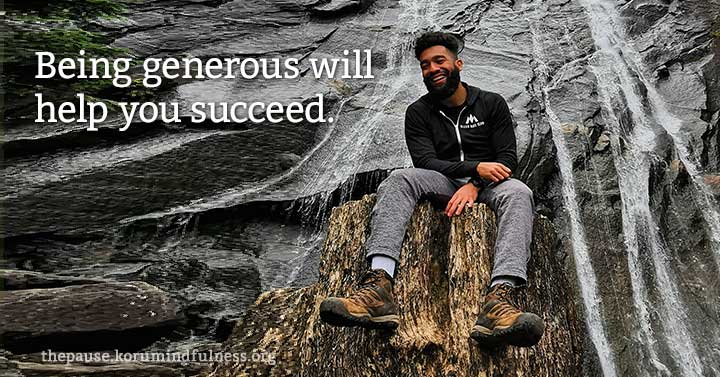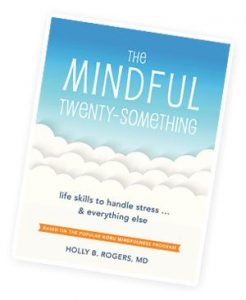
No one ever says it aloud, but I suspect that the thought, “what’s in it for me?” surfaces to some degree for most people when they are urged to be generous.
In another post, I talked about how generosity can make you happier. And I shared the research study that found that folks who learned and practiced mindfulness were more likely to act with compassion than folks who didn’t.
Is acting with compassion necessarily a good thing, though?
Some people worry that they could lose their competitive edge if they cultivate too much positivity. In his book 10% Happier, ABC news anchor Dan Harris shares his struggle with this conundrum. As his meditation practice increased his compassion and kindness, he worried he was losing the cunning and aggressiveness he needed to succeed in the competitive world of TV news. He eventually learned he didn’t have to jettison his ambition as he became less of a “jerk,” and his career continued to advance alongside his meditation practice. He says:
Compassion has the strategic benefit of winning you allies. And then there’s the small matter of the fact that it makes you a vastly more fulfilled person.
“10% Happier” by Dan Harris
Personally, I think it might be natural to wonder, at least a little, if being compassionate all the time might lead to failure.
I mean, we’ve all heard the saying: nice guys finish last.
Is that true?
The research shows just the opposite. Doing good things for other people without the expectation of personal gain will make you happy.
Happiness has been shown to produce a long list of tangible benefits including:
- higher odds of marriage
- lower odds of divorce
- more friends
- stronger social support,
- greater creativity
- increased productivity
- higher income

It seems that nice guys actually finish first. They have better relationships and are more successful at work.
All these findings mirror my personal experience. I’ve never seen anyone become less successful as a result of becoming a happier, nicer person. Unless your heart’s desire is to become a vengeful autocrat, I doubt it will interfere with your goals.
With all this in mind, I hope you are continuing the project we started last time, of doing something helpful or kind for someone else every day. Have you noticed this changing your outlook yet? Let us know in our comments below .
Get our latest articles in your inbox.

Empathy is not a very good feeling that people can use for selfish purposes and thus does not seek to change or improve something.
Thank you for this article- a positive start to my day.